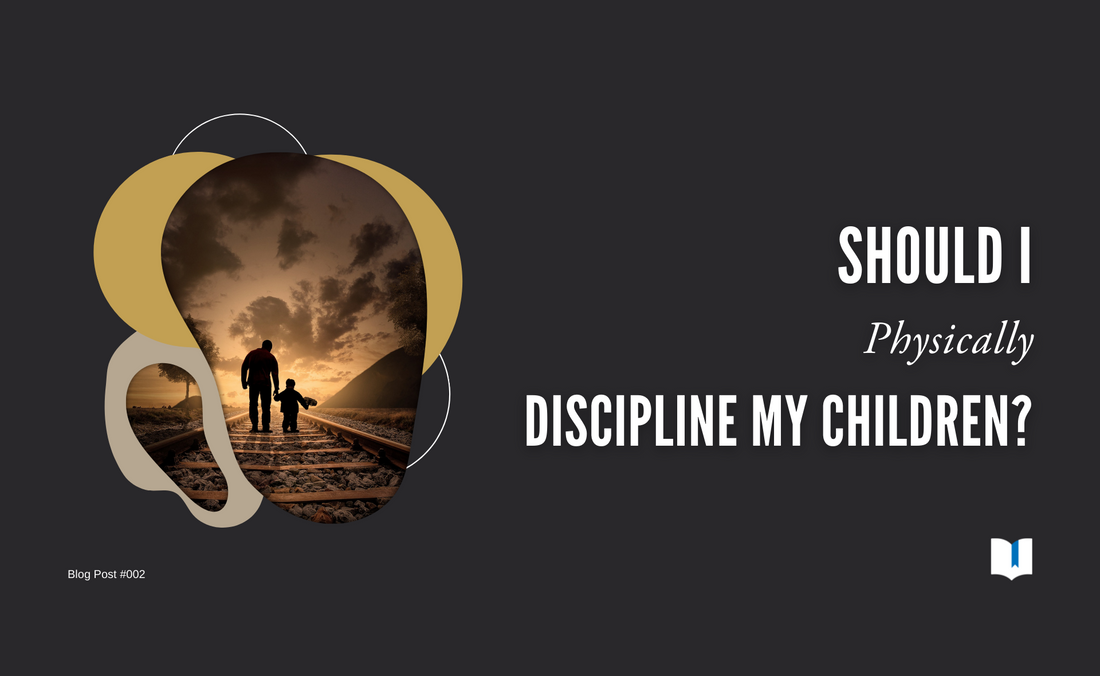
Should I Physically Discipline My Children?
Share
Many spheres of the Christian life require wisdom. In such areas, a one-size-fits-all approach is not possible; rather, a wise man draws fundamental principles from Scripture and applies them faithfully to his unique situation. The temptation in these areas is to fall away from wisdom to the right hand or to the left—to err by taking one principle to its extreme without the counterbalance of other principles. But biblical teaching, received as a comprehensive, synthesized whole, is always balanced.
The discipline of children is one such practical sphere which requires balanced wisdom. On the one hand, the Bible clearly states, “He who withholds his rod hates his son, but he who loves him disciplines him diligently” (Prov. 13:24). On the other hand, the Bible warns parents, “Fathers, do not provoke your children to anger” (Eph. 6:4).
Biblical teaching, received as a comprehensive, synthesized whole, is always balanced.
Following one of these verses to the exclusion of the other will lead to error. Parents might discipline children unfairly, mechanically, harshly, or without love, and do harm through their physical punishments. Or parents might be so afraid to provoke their children to anger that they neglect the rod entirely, thereby allowing the child to grow up believing that sin does not bear painful consequences.
How are these two extremes to be avoided? What is the biblical balance which wisdom discovers? To answer these, the Bible lays down several fundamental elements for godly discipline. We need to know the nature of physical discipline, the purpose of physical discipline, the motive behind physical discipline, and the proper timing of physical discipline.
The Nature of Physical Discipline
Physical discipline is punishment for wrongdoing, but it is not retribution. Biblical discipline is not the same as justice. Discipline cannot be an act of justice because the just penalty for any sin is eternal punishment before God. Instead, discipline is a teaching tool that tangibly associates sin with painful consequences.
Biblical discipline, done God’s way, always flows out of love for the child.
Each time a father disciplines his sinful child, he must remind the child that his sin doesn’t deserve a mere spanking; it deserves death (Rom 6:23) and hell (Rom 2:5–10). The father’s lesson should instill the fear of the Lord and the fear of sin inside the child’s heart. Yet the father must never use discipline for personal retribution, because biblical discipline comes from the father’s love.
The Motive of Physical Discipline
Discipline is an act of love that produces love. God declares this concerning His own acts of discipline. Proverbs 3:11–12 says, “My son, do not reject the discipline of the LORD or loathe His reproof, for whom the LORD loves He reproves, even as a father corrects the son in whom he delights” (see also Heb 12:5–6). Biblical discipline, done God’s way, always flows out of love for the child. Parents do well to remind their children of their love even during discipline. Discipline does not cut off a child’s relationship to his parent; rather, it marks the reality of that relationship. Hebrews 12:9 teaches that children respect their earthly fathers who disciplined them. In God’s grace children often look back with the greatest respect and affection upon those who diligently reprimanded them. Parents must trust God and reprove their children in love.
The Purpose of Physical Discipline
Physical discipline is for the child’s good. The book of Proverbs repeatedly commends discipline as a tool for promoting wisdom in children and protecting them from foolishness. Proverbs 23:13 says, “Foolishness is bound up in the heart of a child; the rod of discipline will remove it far from him.” This general principle is founded upon the biblical teaching of sin. Every child is born corrupted by sin (Ps 51:5); therefore, parents should expect their children to disobey, because foolishness is the default trajectory.
There will come a time in each child’s life when physical discipline will be ineffective against the foolishness of sin.
Yet God has ordained the rod as a gracious instrument to remove foolishness from the child’s heart. Loving, godly, and consistent discipline can even save a child from physical death (Prov 23:14). Therefore, parents should not fear that biblical discipline will harm their child (Prov 23:13). They must reprove their children for their good just as their heavenly Father disciplines His sons.
The Timing of Physical Discipline
Physical discipline is only useful for a short time. Proverbs 9:8 says, “Do not reprove a scoffer, or he will hate you; reprove a wise man and he will love you.” Proverbs makes clear that a child who begins life as a naïve youth will mature into a wise or foolish adult. When that happens, Proverbs 17:10 illustrates the situation: “A rebuke goes deeper into one who has understanding than a hundred blows into a fool.” There will come a time in each child’s life when physical discipline will be ineffective against the foolishness of sin. A wise parent understands that the rod of discipline is best used early in development rather than later. Physical discipline will have greater effectiveness for a kindergartener than for a teenager. Therefore, parents must make the most of every opportunity, using the appropriate tools given them for their appropriate times.
Parents should not fear to discipline their child if they are pursuing God’s wisdom in it. When performed at the right time, for the proper purpose, with a loving motive, discipline can be God’s gift to drive sin far away from a child. Parents must love their children enough to discipline them fairly, consistently, and compassionately, teaching them to fear the Lord every step of the way. Discipline is only one small part of discipleship, but done with biblical balance, God can use it to save the child’s life.
